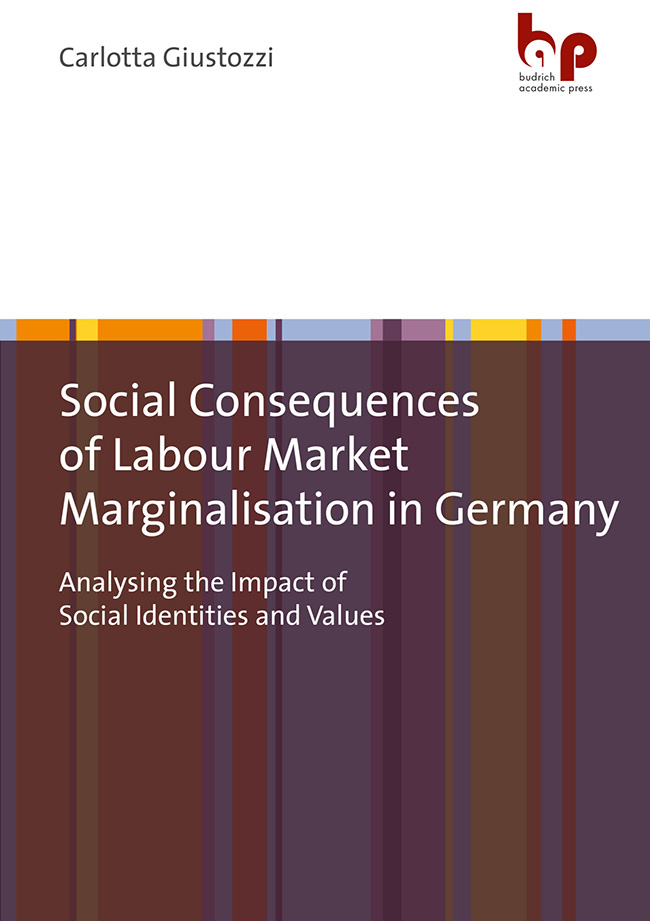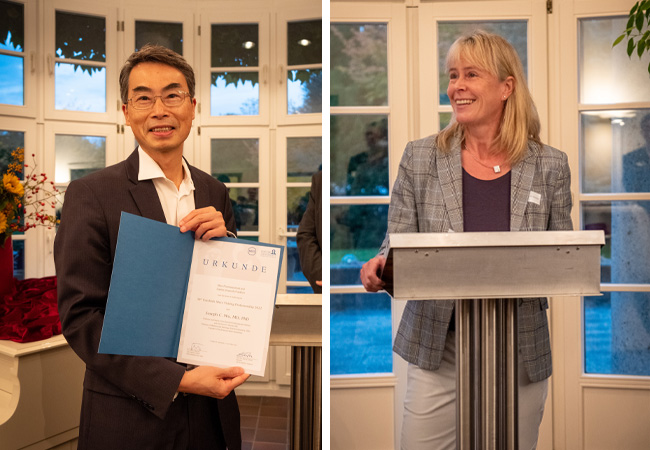In her dissertation, sociologist Carlotta Giustozzi examined the consequences of labor market marginalization on social participation. One of the questions that emerged from the results of her work was the extent to which a societal focus on full-time employment can be harmful to both the individual as well as society.
UniReport: Dr. Giustozzi, there is no doubt that unemployment and precarious employment impact our social lives. What interested you in this topic?
Carlotta Giustozzi: I previously worked on a research project that looked at the consequences unemployment had in different European countries following the financial crisis. My subfield focused on the extent to which this affects the social integration of individuals, including whether unemployment has a different impact in countries with a well-functioning welfare state than in those with little state financial support for the unemployed. As a follow-up to this, I found it interesting to look not just at one-off unemployment, but at processes: How does repeated unemployment affect people’s identity? How does such a state of permanent precariousness affect social interaction?

At some point in your dissertation you say that material security is a generally overestimated factor.
The initial assumption might be: A person who is dependent on unemployment benefits has fewer financial resources, which can impact social contacts. In such a situation, this person can no longer afford to take someone out to dinner, for example, or has to move because the apartment has become too expensive. As a result, they are torn out of their local social network. My analyses showed that while social engagement is certainly reduced when people have fewer financial resources, as in the case of unemployment, other factors beyond the material ones also play a role. And that is what drew me to this topic.
So you adopt a more holistic view of people. How can one quantify social commitment and involvement in family and friends?
For my work, I drew on a longitudinal study, the German Socio-Economic Panel (Sozio-Ökonomisches Panel, SOEP) and combined this data with information on the respective regions in which the study participants live. Conducted since 1984, the SOEP study provides a wide range of information on working life, as well as family status and attitudes on various issues. All individuals are asked (almost) the same questions recurrently. Of course, it is not that easy to answer the question of whether a person’s identity is strongly or less strongly affected by the state of the labor market. One question I have used is: How often do you see friends and family, how often do you help them? Do you live in the same household with your partner and with children? The information available in the dataset also allows you to calculate gender effects.
You also identified regional differences in your study.
On the whole, it can be said that social commitment is lower in certain regions with high unemployment. In regions with low unemployment, on the other hand, the individual situation takes on greater importance. Here, it is more serious to be affected by unemployment oneself. My interpretation on why this is so is that one is worse off compared to the others, and thus more affected by stigmatization and discrimination. By contrast, in regions with high unemployment, the individual becomes less important. Another noteworthy finding: Women are more dependent on the local context for their unemployment, and benefit from good childcare, for example. Men, on the other hand, are less dependent on the structural environment.
Men are also negatively affected by the dominant structure of full-time work, you write.
Yes, men also suffer from this. The impact that difficulties in the labor market have on personal relationships is greater for men than it is for women. I found it interesting to look at it from this angle as well, not just from the perspective of women’s disadvantage and dependence – which, of course, nevertheless remains a fact!
At one point you write that people whose identity is not tied solely to their job and to full-time employment are less likely to experience social exclusion when they become unemployed.
Yes, I looked at both close social ties and social engagement. You can say that for people to whom family and partnership are important, for those who like to take care of others, the negative effects of labor market marginalization are cushioned. Such people also find meaning in their lives beyond the workplace. In this context, it is interesting to note that for people to whom work and career are important, a long period of unemployment leads to more social commitment. My initial assumption was that this group would be more withdrawn in the event of unemployment.
You also use the term “accumulated marginalization” to refer to people who experience permanent difficulties in the labor market.
Being unemployed for only three months hardly affects someone’s identity. If unemployment continues for half a year or more, the impact on identity intensifies significantly and can be accompanied, for example, by a loss of motivation. However, something interesting can also be observed at the other end of the spectrum: Long and continuous full-time work, for example, negatively impacts social engagement. This may be related to the fact that people are very involved in their jobs and have little time to get involved in society. I haven’t explored this further yet, but would like to take a closer look. A society that relies heavily on full-time work needs to realize that this can also result in a lack of social engagement. Full-time work is not the only thing that creates individual and social identity. Society should ask itself the question: Is a person’s value solely linked to their labor market situation? It’s also a question of how you approach people who don’t perform so well on the labor market. It certainly would be good to give these people a dignified place in society as well.
Questions: Dirk Frank
Carlotta Giustozzi
Social Consequences of Labour
Market Marginalisation in Germany.
Analysing the Impact of Social
Identities and Values
Budrich 2022, Leverkusen
268 pages, 36 euros














